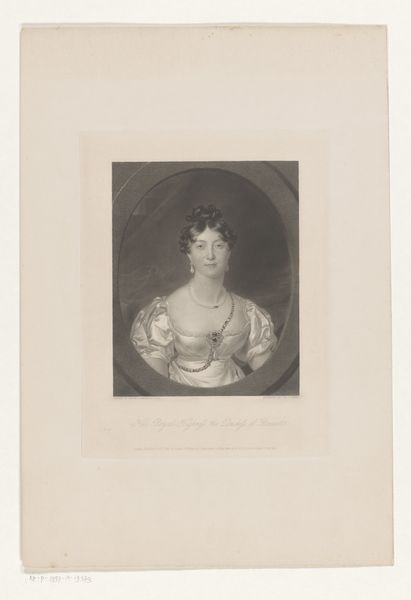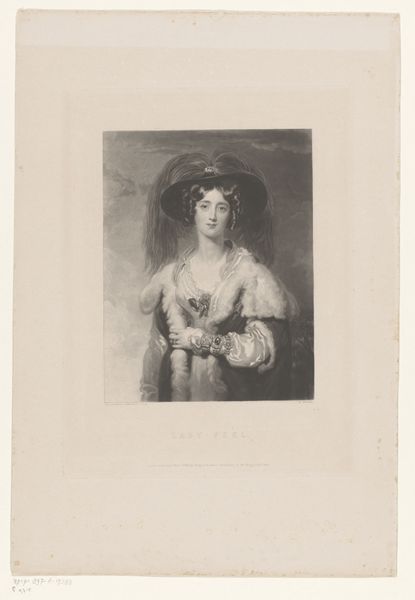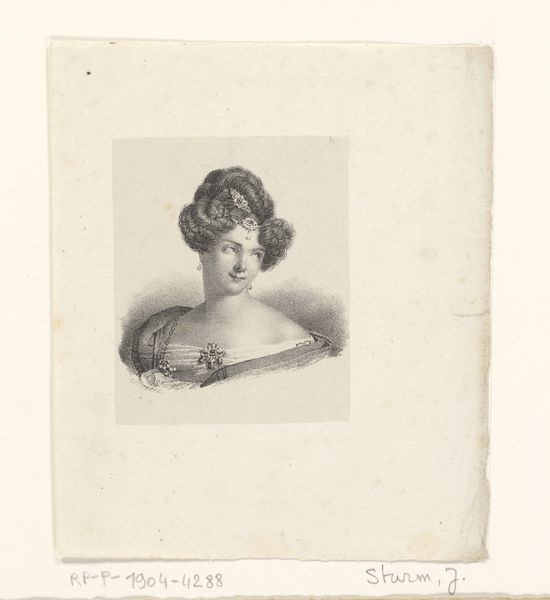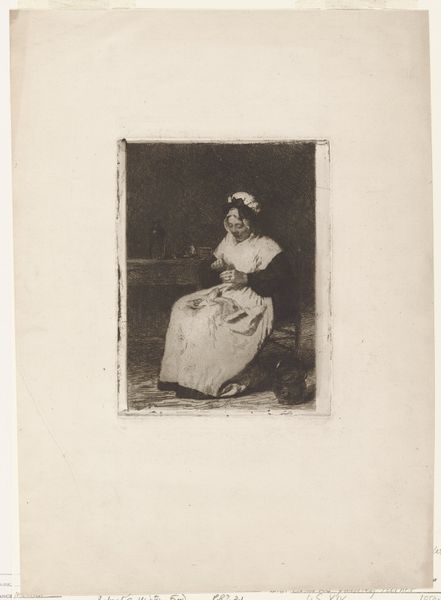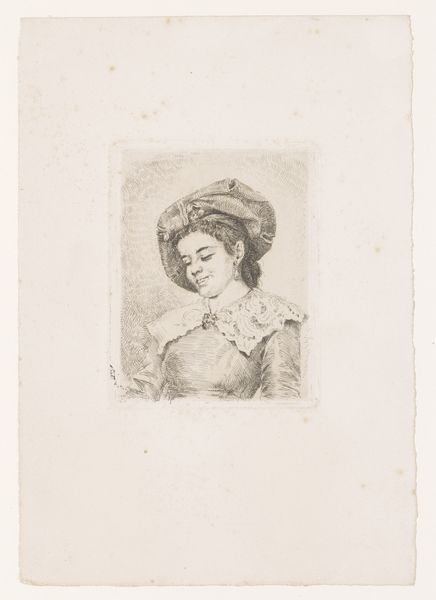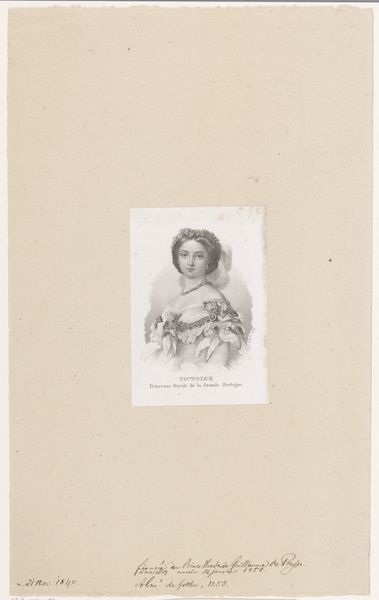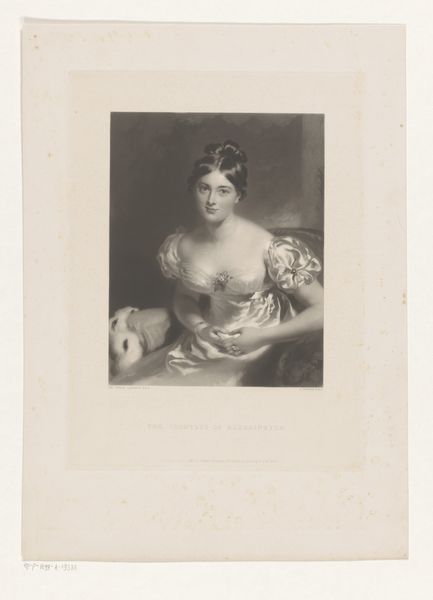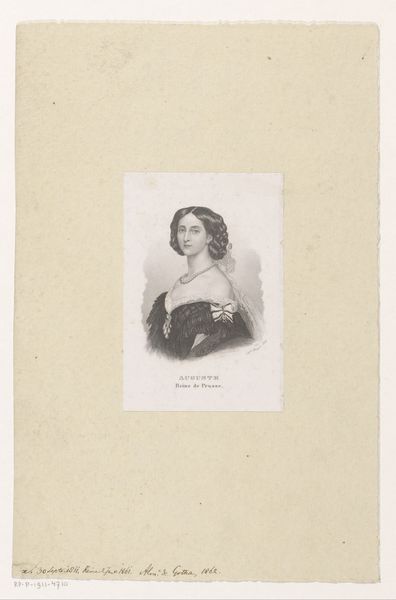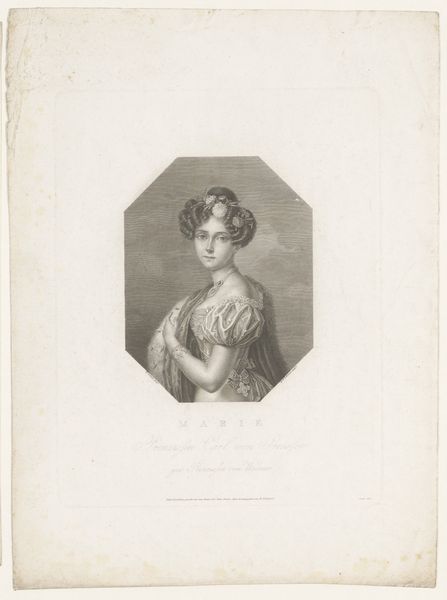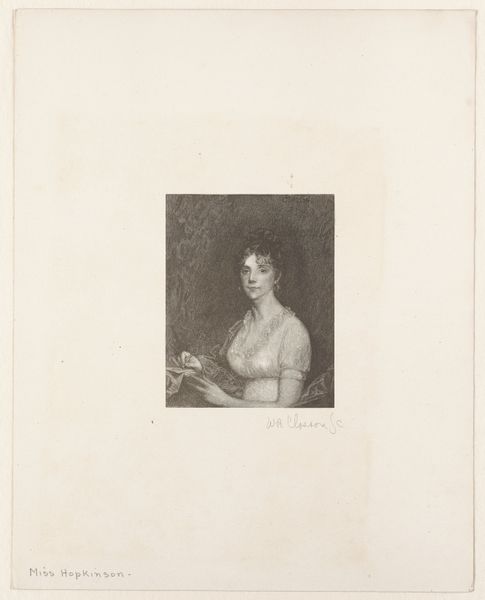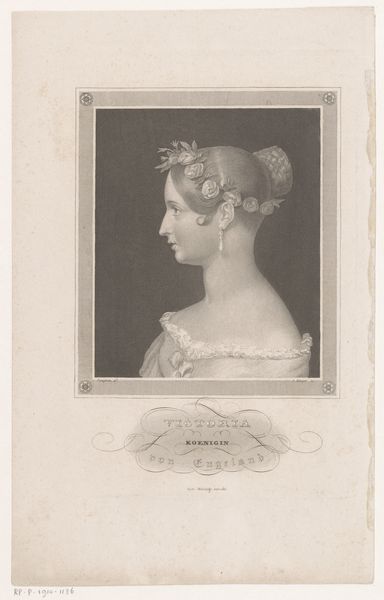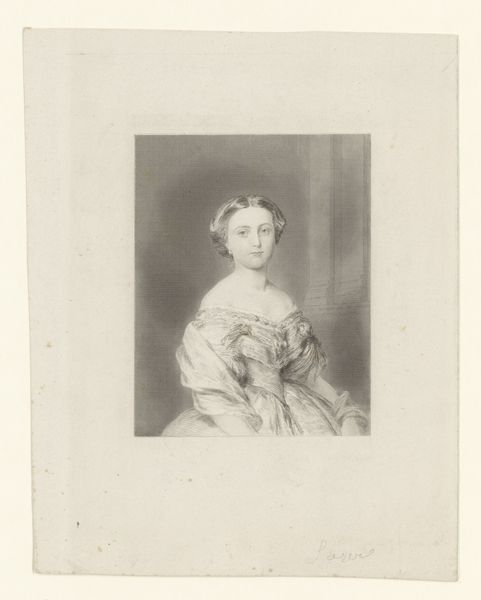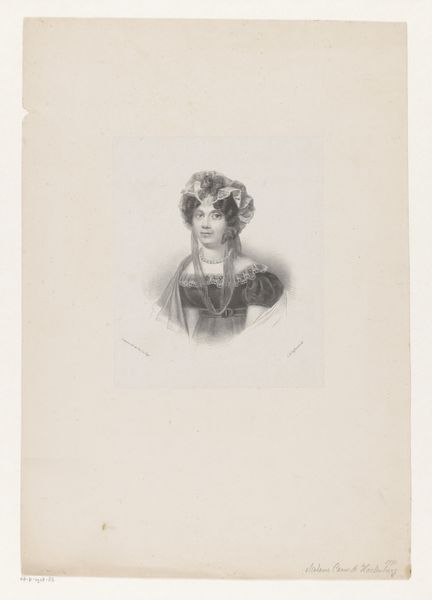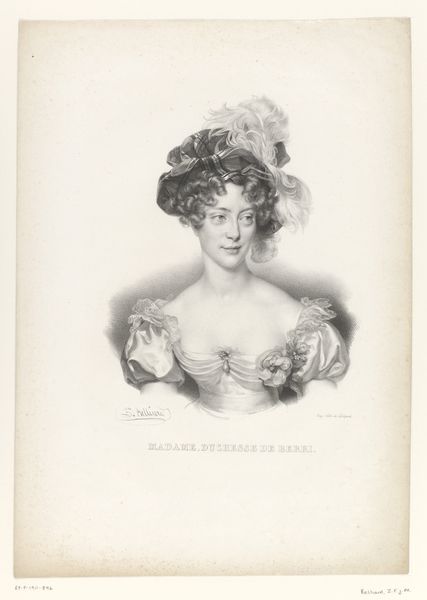
print, engraving
#
portrait
#
neoclacissism
# print
#
history-painting
#
engraving
Dimensions: height 286 mm, width 221 mm
Copyright: Rijks Museum: Open Domain
Josef Axmann’s portrait of Amalia of Saxe-Weimar-Eisenach was made with etching and burin. The print depicts Amalia in her finery, complete with jewels and a fur stole, visual signifiers of her status as a Duchess in the early 19th century. Born into a noble family, Amalia would have been conscious of her social position and lineage. It is interesting to consider portraiture as an institution in itself; paintings and prints were commissioned and displayed in order to represent individuals of status, often to a wider public. If we want to fully understand portraits like this, it is important to consider who they were made for, where they were displayed, and what role they played in maintaining social hierarchies. One might look into records of the Saxe-Weimar-Eisenach family, or records from portrait studios in Germany, to get a better sense of the context of its production.
Comments
No comments
Be the first to comment and join the conversation on the ultimate creative platform.
